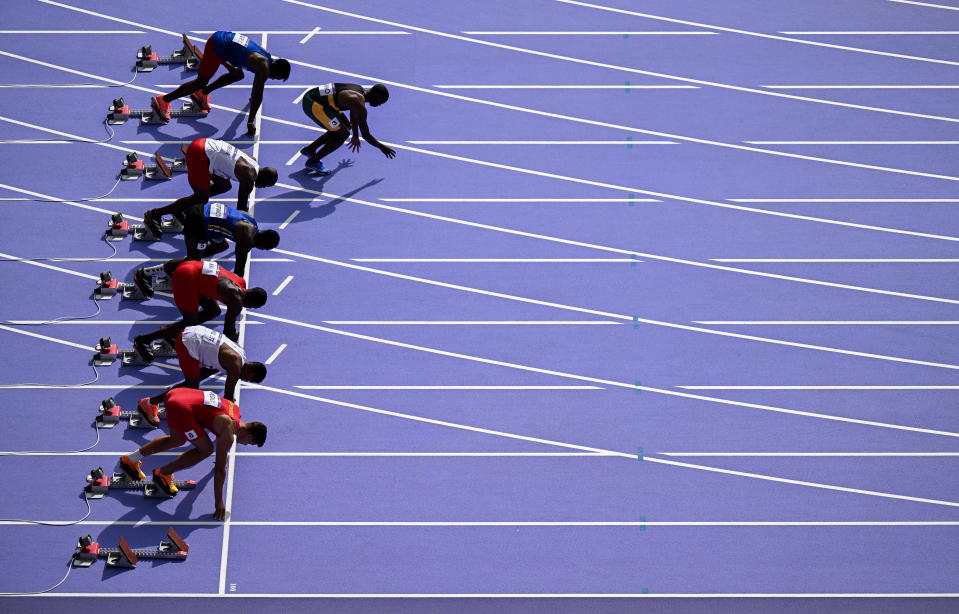
PARIS – With his hands on his head and tears in his eyes, Mozambican runner Steven Sabino left the purple track of the Stade de France and disappeared into the tunnel.
The 18-year-old couldn’t believe he could fly back from the Olympics without competing.
Just seconds earlier, Sabino was on the line to start the second heat of the men’s 100 meters, but he was out of the guns before the gun went off. Track officials decided he had a false start and showed him a red card disqualifying him.
“We went to the designated area and I heard an explosion,” said Sabino between 10 minutes later. “I don’t know where it came from. Maybe it’s a website. I don’t know. I heard a sound, the kind of sound you hear when an electronic gun goes off.”
Sabino pleaded his case briefly to follow Vadim Nigmatov of the manager, pointing to his ears to show what he heard. He said he asked to run the race under protest, but Nigmatov and other officials refused.
Sabino said: “They didn’t even hear what I said. “I sacrificed everything for this.”
Sabino’s ordeal is the latest reminder that the false start policy in track and field may be the cruelest, most unforgiving rule in sports. It’s more random than a sixth foul in the NBA Finals, more dangerous than a red card in the World Cup and more common than an unmarked score card for one of the golfers. It has inspired grown adults in a way and has inspired other sporting legends – even the great Usain Bolt.
Less than an hour after Sabino’s false start, law enforcement ejected another runner. Great Britain’s Jeremiah Azu started in his 1st heat and was also eliminated without a run.
Azu, like Sabino, said he “heard something and took action.” He plans to appeal his disqualification in the hope that he will be given the chance to run solo and try to make Sunday’s semifinal in time.
“Right now, I’m acting like I’m running again,” he said
The international governing body created a zero-tolerance policy a decade ago out of a desire to improve the game and eradicate art.
Under the old rules, sprinters or hurdlers known for their slow reaction times would try to get the edge by guessing when the starting gun would fire, knowing that the penalty was will be charged on the field instead of self-inflicted. A lot of false positives went down and made it difficult for the TV networks to work for a while.
In their eagerness to make the sport more TV-friendly, World Athletics officials also risked depriving viewers of the chance to watch the sprinters race. Imagine the outcry if Noah Lyles or Sha’Carri Richardson went too far this week and received the red card shown to Sabino.
Sabino says he has been looking forward to running on the Olympic stage since he started running as an 8-year-old child. He is currently in grade 12 at a school in South Africa, still doing his schoolwork and training.
“My practice marks were showing what I wanted to see,” he said. “I thought this was my chance to show the world that I’m capable and unfortunately it didn’t happen.”
The cruelest part of Sabino? He says this was his first false start.
“The fact that this is my first and it’s on the biggest stage…,” he said, his voice trailing off.
Cruel. Absolutely brutal.
#Paris #crying #Mozambican #runner #latest #victim #sports #brutal #rule